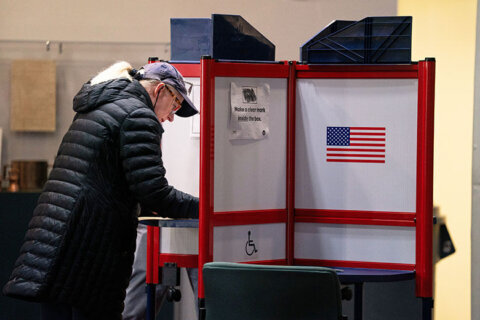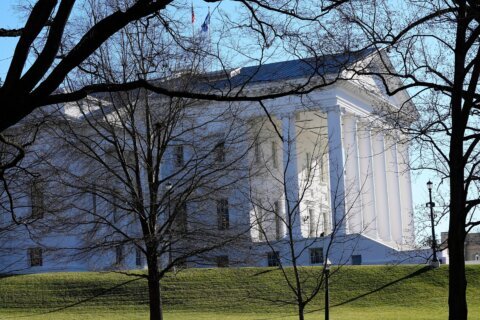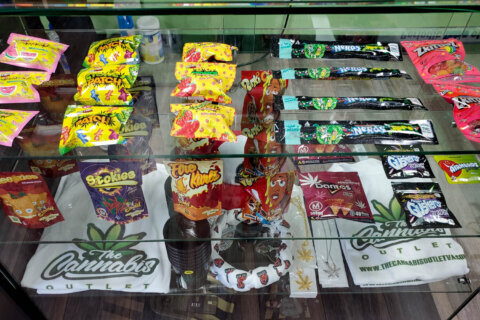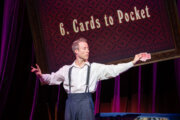This article was reprinted with permission from Virginia Mercury.
Three months ago, Kelly Phillips got a letter from Virginia officials warning her that the small cake pop business she runs out of her home was selling its bite-sized treats illicitly.
This week, several grown men waved cake pops around in the Virginia House of Delegates as the body voted 94-2 to pass a bill that would grant more freedom to Phillips and other small purveyors of homemade goods to sell their products without getting in trouble with the government.
“I am still in shock, obviously, that cake pops are such a huge discussion,” said Phillips, who runs KP’s Kake Pops in the Richmond area, in an interview this week.
The bill — which initially dealt with homemade pickles — was modified to address the two things that got Phillips crosswise last year with the Virginia Department of Agriculture and Consumer Services. The agency is responsible for enforcing food safety rules that kick in when small businesses started in home kitchens grow into bigger commercial enterprises.
Safety inspection rules don’t apply to low-risk foods like baked goods, jellies, nuts and pickles produced in home kitchens, as long as they’re sold directly to customers out of the producer’s home or at a farmers market. Uninspected goods cannot be sold online.
The legislation would clarify that advertising or promoting homemade goods on social media platforms doesn’t count as actually selling them via the Internet as long as all the transactions take place in person. A VDACS representative said the agency supports the bill because, despite past confusion, it aligns with how regulators are now interpreting the law.
It would also broaden the range of local events where homemade goods can be sold without being inspected by food safety officials. Under the new version, the farmers market rule would be loosened to allow face-to-face sales at any “temporary event that operates for a period of no more than 14 consecutive days,” a definition that would cover a wider range of craft shows, holiday markets and other events that don’t focus primarily on farm-produced goods.
When Phillips was contacted by regulators last year, she was initially told she could not promote her products on social media sites like Facebook and Instagram even if she wasn’t actually conducting transactions digitally. She was also told she had violated the farmers market rule by setting up a booth at an event called the Holiday Handmade Showcase held at a Chesterfield County shopping center.
When Del. Nick Freitas, R-Culpeper, presented the legislation on the House floor, he said what started as a pickle bill was “now even more affectionately referred to as the cake pop bill.”
Presenting the bill earlier in a committee that deals with agricultural issues, Freitas said he modified his proposal after hearing about the cake pop problems.
“What this really comes down to is just trying to clarify what the rules are and trying to keep it all reasonable and safe at the same time,” Freitas said.
The bill sponsored by Freitas is broader than cake pops. The exemption in state law allowing some homemade goods to be sold without safety inspections has tougher rules for pickles due to the acidification process and the greater health risks involved with improper pickling and canning. Under current law, uninspected pickle operations are only allowed to make $3,000 in gross sales revenue per year. The bill approved by the House raises the cap to $9,000.
Some lawmakers asked for data on whether there had been any pickle-related health scares in the decade or so since uninspected pickles have been allowed. After being assured by the Virginia Department of Health that there haven’t been any issues with people being sickened by homemade pickles, legislators agreed to keep the language tripling the sales cap.
When the bill was heard in committee, some lawmakers from more rural parts of Virginia seemed unfamiliar with cake pops.
“What’s a cake pop look like? What’s the size of it?” asked Del. Tony Wilt, R-Rockingham.
Freitas told him to “think of a little piece of cake.”
“But it’s on a stick like a popsicle,” he added.
Del. Chris Runion, R-Rockingham, chimed in to inform the committee that some people in the Shenandoah Valley are aware of cake pops.
“In our end of the Valley, we have them,” Runion said.
Seeing some delegates try to grasp the unfamiliar concept gave Jaimie Ashton an idea.
An animal rights activist from Spotsylvania County, Ashton observed the cake pop discussion while waiting to see the same agriculture subcommittee take up several animal-related bills.
When the bills got their next stop in the full House, Agriculture, Chesapeake and Natural Resources Committee, she passed out more than two dozen Starbucks cake pops to the committee members, one of whom seemed to still be confused about whether the pops are supposed to be eaten or licked.
“They were joking that the best part of it was that Freitas wasn’t there to get one,” Ashton said in an interview.
It was apparently some of those cake pops that later made a cameo on the House floor, captured for posterity in the official video recording of the chamber’s proceedings.
Phillips, the home baker who partially inspired the bill, has not yet come to the Capitol to testify for the cake pop bill, but she said she’s been asked to potentially make an appearance when the legislation is heard in the state Senate.
She’s also been told by her Capitol contacts to prepare for a possible bill-signing ceremony with the governor, who previously shared a social media post about her predicament in which he vowed to “fix this” and ensure Virginia remains “the best place to live, work and bake cake pops!”
“I’ve heard from them that Gov. Youngkin is excited about cake pops,” Phillips said. “I hope that’s true.”







